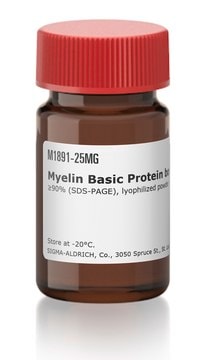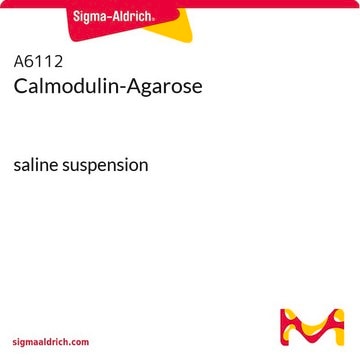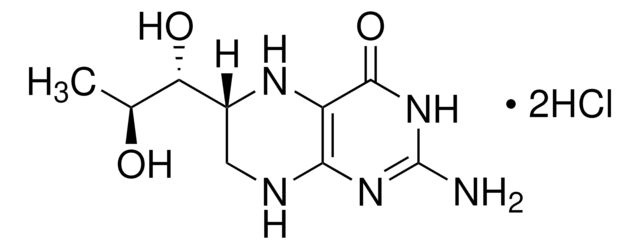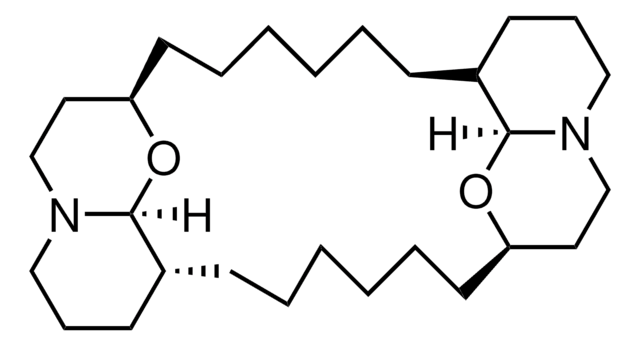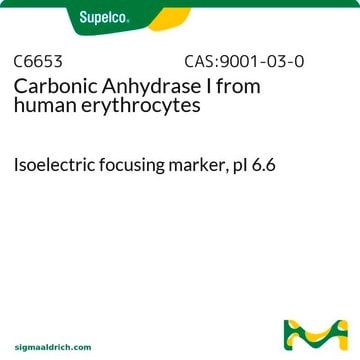P1431
Calmodulin from bovine testes
BioUltra, ≥98% (SDS-PAGE), lyophilized powder, essentially salt free
Synonyme(s) :
CaM, Phosphodiesterase 3′:5′-cyclic nucleotide activator
About This Item
Produits recommandés
Source biologique
bovine testis
Niveau de qualité
Gamme de produits
BioUltra
Pureté
≥98% (SDS-PAGE)
Forme
lyophilized powder
Poids mol.
16.79 kDa
Conditions de stockage
(Keep container tightly closed in a dry and well-ventilated place)
Technique(s)
ligand binding assay: suitable
Impuretés
salt, essentially free
Numéro d'accès UniProt
Application(s)
cell analysis
Température de stockage
−20°C
Informations sur le gène
cow ... CALM3(520277)
Vous recherchez des produits similaires ? Visite Guide de comparaison des produits
Catégories apparentées
Description générale
Calmodulin (CaM) is a Ca2+-sensor protein containing four EF-hand motifs that bind to four Ca2+ ions. It is found ubiquitously in all eukaryotes.
Application
- as a component of the reaction mixture in PhosphoSens assay to measure Ca2+/calmodulin-dependent protein kinase II α (CaMKIIα) substrate phosphorylation
- to generate standard curve for the determination of in situ calmodulin concentration in tissues
- as a ligand in radio-ligand binding for studying calmodulin affinity
Actions biochimiques/physiologiques
Anticorps
Produit(s) apparenté(s)
Code de la classe de stockage
11 - Combustible Solids
Classe de danger pour l'eau (WGK)
WGK 3
Point d'éclair (°F)
Not applicable
Point d'éclair (°C)
Not applicable
Équipement de protection individuelle
Eyeshields, Gloves, type N95 (US)
Certificats d'analyse (COA)
Recherchez un Certificats d'analyse (COA) en saisissant le numéro de lot du produit. Les numéros de lot figurent sur l'étiquette du produit après les mots "Lot" ou "Batch".
Déjà en possession de ce produit ?
Retrouvez la documentation relative aux produits que vous avez récemment achetés dans la Bibliothèque de documents.
Les clients ont également consulté
Notre équipe de scientifiques dispose d'une expérience dans tous les secteurs de la recherche, notamment en sciences de la vie, science des matériaux, synthèse chimique, chromatographie, analyse et dans de nombreux autres domaines..
Contacter notre Service technique

